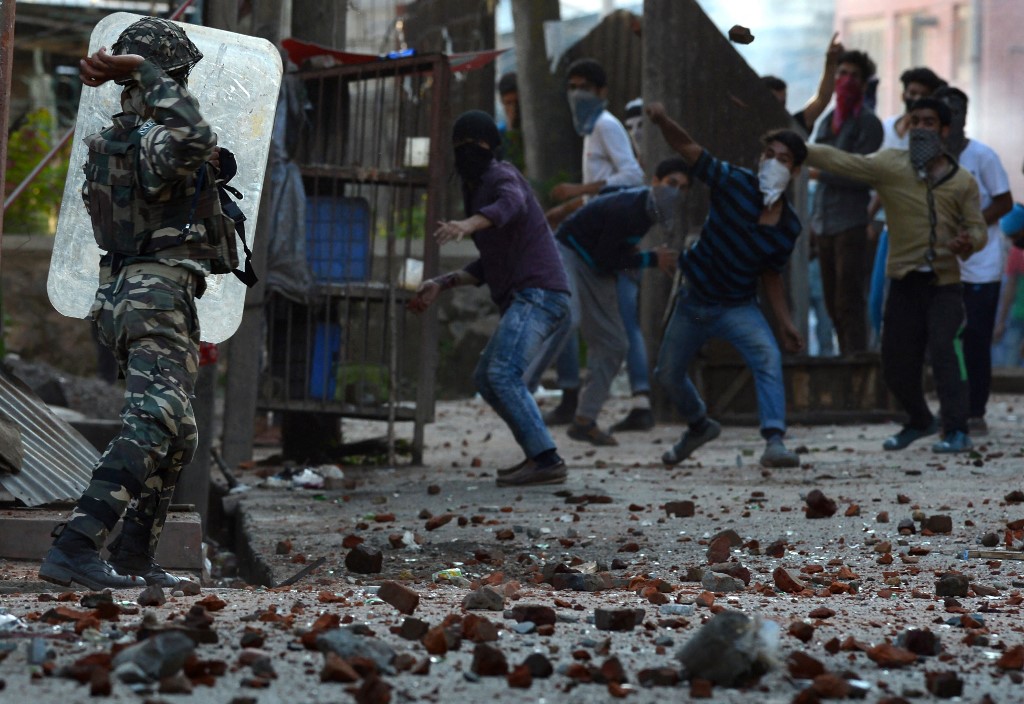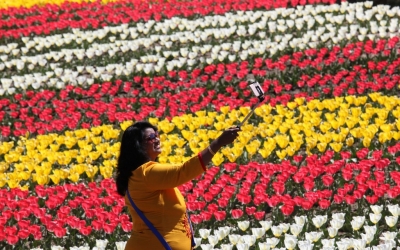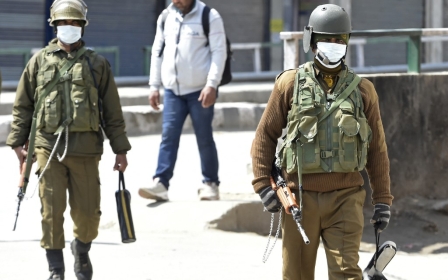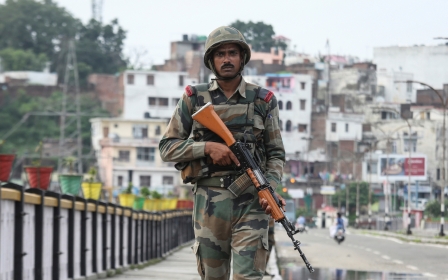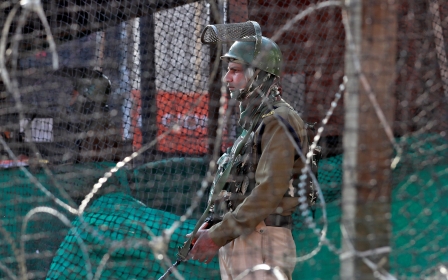Why does Kashmir's internet matter, when Kashmiri lives don't?
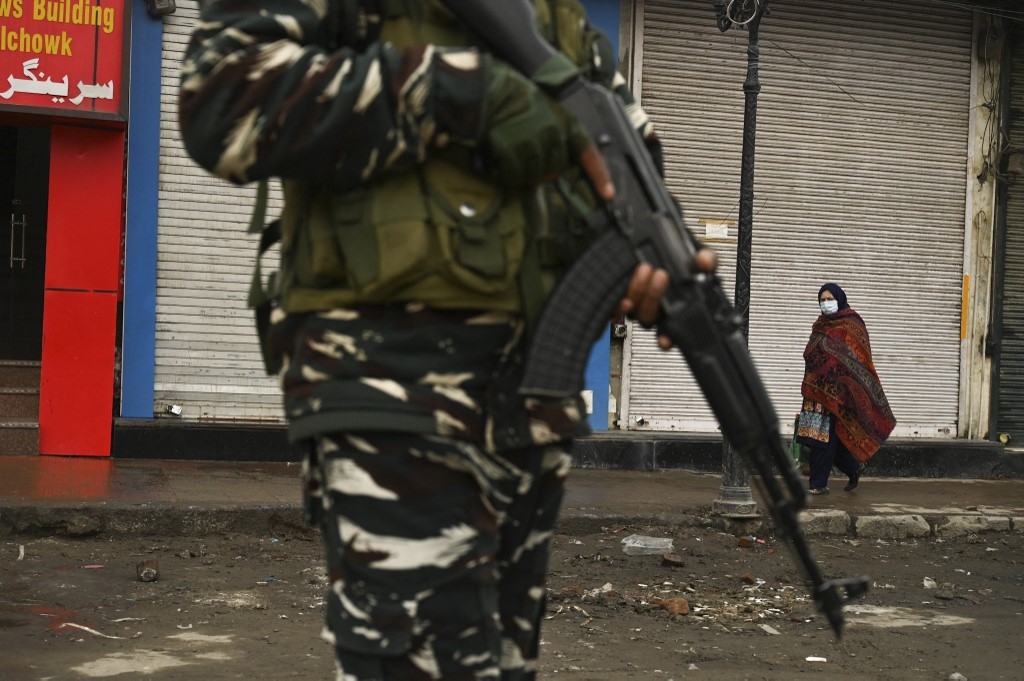
Last week, the US State Department’s Bureau of South and Central Asian Affairs tweeted its appreciation of the “resumption of 4G mobile internet in India’s Jammu and Kashmir” as an important step to “restore normalcy”. This was in the context of India having imposed a total communications blackout across Jammu and Kashmir in August 2019. High-speed internet continued to be restricted for a year and a half, before being restored on 5 February.
While the goal of the US statement was to make a public show of concern for freedoms worldwide, what does it say that the State Department zoned in on internet access, without addressing the wider context of rampant human rights abuses in Kashmir under India’s military occupation?
From Palestine to Kashmir, technology has been weaponised, used as a tool of warfare to further humiliate, dispossess and dehumanise the 'Other'
The notion that “normalcy” means the internet being restored to high speed, with tourists clicking pictures to showcase that Kashmir is “safe”, highlights a twisted logic whereby human rights exclude the human element. Equating internet access with greater political freedoms is consistent with a liberal view that sees technology as neutral, with access alone serving as a determinant of normalcy.
In the months following the military siege and communications blackout, some attention was paid to Kashmir at the international level - unlike in previous years. Largely mobilised by the Kashmiri diaspora, expressions of solidarity included protests, teach-ins and social media hashtags.
Yet, in most statements on Kashmir, concerns centred around the communications blackout. After all, how could a supposedly democratic country, in this era, deprive a people of something as basic as the internet? In a casual conversation with an acquaintance around this time, he aptly noted that it did not matter to the world when Kashmiris were killed by the hundreds in previous years.
New MEE newsletter: Jerusalem Dispatch
Sign up to get the latest insights and analysis on Israel-Palestine, alongside Turkey Unpacked and other MEE newsletters
It was not enough that Kashmir was subjected to the world’s first mass blinding in 2016, with more than 1,000 people reportedly suffering full or partial eye damage. What the international community could not comprehend was how the internet could be blocked; hence, the outrage and solidarity.
The blackout brought more visibility to Kashmir in 2019, although still not much in comparison with the brutality of the Indian occupation. Human lives apparently do not matter as much as the internet. This is not to say that Kashmiris look to the world to speak of their plight, or do not consider the removal of internet to be a violation, but merely to highlight the hollowness in the global discourse.
Multilayered violence
In September 2019, a month after India fast-tracked settler-colonialism in Kashmir by removing provisions that granted the latter “special status”, Indian Minister of State Jitendra Singh spoke at the India Today Conclave, where he insisted that human life was more important than internet connectivity.
Singh’s remarks reflect the Indian state’s narrative, whereby its multilayered violence against Kashmiris comes with the justification that this is safeguarding their lives and rights, along with the security and integrity of the nation. India’s media watchdog, the Press Council of India (PCI), also cited the national interest as it asked to intervene in a petition seeking to end the internet blockade with a justification of the ban, even as it is tasked with ensuring freedom of the press.
The state and its institutions have aimed to justify India’s curtailing of the right to communication and internet, while erasing its violent occupation of Kashmir from the narrative. But the global outrage, restricted to the internet ban alone, was another form of erasure, decontextualising the situation in Kashmir from the military occupation and its settler-colonial framework.
Kashmiris being excluded from the virtual world in 2019 generated more concern than the scores of youngsters killed and blinded in previous years.
Apparently, human rights advocates rely on a hierarchy with respect to the rights to life and internet, whereby the former is too insignificant to be taken up as a cause, and the latter demands unprecedented outrage. In a sense, this appears as solidarity with the state; after demands are made on an occupying power to restore the internet, its restoration is then seen in the prism of democratic rights being granted.
Settler-colonial structure
Rather than being exceptional, the state of an on-and-off internet blackout, amid constant monitoring, reflects the settler-colonial structure whereby state violence extends to cyberspace. Arbitrary restrictions on the internet cannot be seen as a compartmentalised policy, but rather as a continuation of the state’s attempts to subvert resistance.
From Palestine to Kashmir, technology has been weaponised, used as a tool of warfare to further humiliate, dispossess and dehumanise the “Other” through a constant monitoring and regulation of digital spaces. Israel’s mass surveillance operation to censor and control Palestinians is among the “largest of its kind” in the world. This type of invasive presence in the digital arena goes alongside everyday, normalised violence by the occupying state against the people it seeks to subjugate.
Internet access is an important right, but it cannot be divorced from a broader human rights perspective.
Meanwhile, a team of cyber-crime volunteers is being assembled to report on “anti-national” internet posts in Kashmir, strengthening India’s digital militarism and overall occupation structure. And a father’s battle against the Indian state to return the body of his teenage son has resulted in charges against him, while an empty grave awaits the 16-year-old.
But the good news - worthy of all attention - is: the internet is working!
The views expressed in this article belong to the author and do not necessarily reflect the editorial policy of Middle East Eye.
Middle East Eye delivers independent and unrivalled coverage and analysis of the Middle East, North Africa and beyond. To learn more about republishing this content and the associated fees, please fill out this form. More about MEE can be found here.


